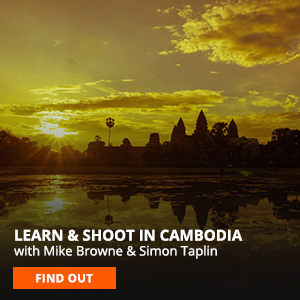Best Light for Landscapes
 You can't change the light on a landscape. It's too big. So the only thing you can change is when you visit the location. Sorry people but that's the way it is.
You can't change the light on a landscape. It's too big. So the only thing you can change is when you visit the location. Sorry people but that's the way it is.
The best landscape photographers spend many hours planning their shoots. They check weather reports, sunrise and sunset times and even where in the sky the sun rises and sets at certain times of year.
Then they shoot based on this research so they know the light will be right. Trust me, breathtaking landscape photos are all about planning and thinking like a photographer.
Generally speaking the best times to shoot are at the beginning and end of the day because the light is coming in low and casting long shadows, which give texture and shape to the scene.
At midday the light is coming straight down so where will the shadows be? Think about it for a moment. Imagine it. The shadows will be right underneath which means unless there's an overhang of some kind, there won't be any. If you shine light straight down onto a mountain it cant cast a shadow. A tree will have a dark patch below it and the eaves of a building too, but neither is very attractive or makes for great photos.
The colour of light is different as well. At each end of the day it has lots of reds, oranges and yellows in it. That's why I'm so red in the video. The lighting is coming from the sunset going on behind the video camera and it's blowing red light all over me - and the buildings I'm shooting.
Low angled light is king.
So what do you do if you can't visit at these times of day? Go for smaller details and look for patterns and shapes maybe. But a big scene landscape will look like the example I shot at midday in the video. It's OK(ish) but certainly not and nice as the one with the appropriate lighting for the shot which was in the evening.
I wish I could give you a quick fix answer, but there isn't one. It's the old story of dedication and effort in = results out. And these are not functions of the camera, they're functions of you, the photographer. Which is why you have to think like one.
Special thanks to camera woman Marie Carabin.

























